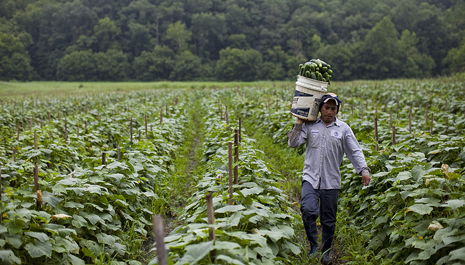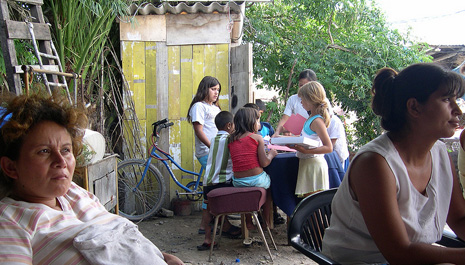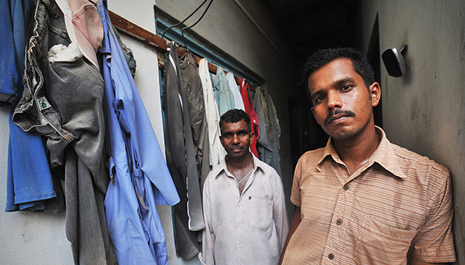Who We Are
(2023/2024)
GMPA is one of few organizations in the migration field accomplishing both excellency competence across multidisciplinary fields and representivity with diversity across multiple grounds including gender, ethnicity, region, social class, age, and migration experience as well as work/professional experience and local-national-regional-global levels. The double majority of current Associates and Affiliates --23 of 31-- are or have been international migrants by definition, a majority--19 of 31-- are from and/or based in the Global South, and 20 of 31 members are women.
THE ASSOCIATES
Jane Aeberhard-Hodges (Australia/Geneva), Victoria Castillo (Colombia/Spain), Tamirace Fakhoury (Lebanon/France/USA), Cyprien Gangnon (Benin/Burkina Faso), Ibrahima Guisse (Senegal/Geneva), Patricia Myriam Isimat-Mirin (Côte d'Ivoire/Geneva), Irina Ivakhnyuk (Russian Federation), Olga Kadysheva (Russian Federation/France), Mehdi Lahlou (Morocco), Yelena Sadovskaya (Kazakhstan), Paolo Ruspini (Italy), Petra Snelders (The Netherlands), Patrick Taran (USA/Geneva), Piyasiri Wickramasekara (Sri Lanka/Geneva), Bridget Wooding (UK/Dominican Republic), Emel Zerrouk (UK/Canada), Abdelhamid El Jamri (in memorium; Morocco/France).
THE AFFILIATES
Marla Asis (Philippines), Denielle Amparado (Philippines), Pablo Ceriani (Argentina), Violeta Correa (Argentina), Jana Costachi (Moldova), Elena Dingu-Kyrklund (Romania/Sweden), Genevieve Gencianos (Philippines/France), Hiral Hirani (Kenya/Geneva), Ray Jureidini (Lebanon/Qatar), Guillermo Kerber (Uruguay/Geneva), Sadhana Manik (South Africa), Marius Olivier (South Africa/Australia), Rebecca Lily Shepard (USA/Geneva), Constance de la Vega (USA), John Wrench (UK/Denmark), Joyce Jett (in memorium; USA/Geneva).
GMPA OFFICERS
Patrick Taran (President), Olga Kadysheva (Secretary).
SECRETARIAT
Patrick Taran, Olga Kadysheva;
Research Associates (2024):
- Massimiliano Addobbati (Italy; Geneva School of Diplomacy) (since October 2024)
- Chris Bai (USA & Côte d'Ivoire; Geneva School of Diplomacy) (since October 2024)
- Gül Eda Düzgün (Hacettepe University, Türkiye) (since February 2024)
- Elisa Ferrante (Italy; University of Geneva) (November 2023-May 2024)
- Amanda Gach (Brazil & USA; ETH Zürich) (since September 2024)
- Akshith Karney (India; Geneva School of Diplomacy) (since October 2024)
- Monica Mac Dougall (Switzerland) (since September 2024)
- Desiree Mortenson (USA; Geneva School of Diplomacy) (since April 2023),
- Emma Rimonteil (France; University Lumiere Lyon2) (February to July 2024)
- Hiya Sharma (India; Geneva School of Diplomacy) (since March 2024)
- Thomas Wormeester (Sweden; Geneva School of Diplomacy) (since October 2024)
- Alicia Zimmermann (Germany & USA; Geneva School of Diplomacy) (since September 2024)
| THE ASSOCIATES | |
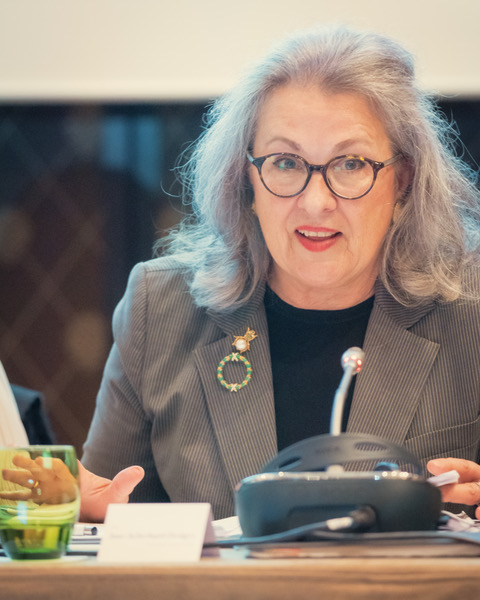 |
Jane Aeberhard-HodgesJane is a globally recognised ILO standards specialist and human rights expert specialized in public international law, international and comparative labour law, and gender equality and human rights law. Before her 35 years at the ILO, Jane practised as a Solicitor and Notary Public in New South Wales and as a Trademarks Attorney under Australian Federal Statute. Jane joined the ILO in 1979, working in the Freedom of Association and Equality and Human Rights Coordination Branches; the Southern African Multidisciplinary Team; the Department of Social Dialogue, Labour Law and Administration. and for 10 years was Director of the Gender Equality Bureau and member of ILO’s Senior Management Team. Jane stewarded drafting of the ILO Violence and Harassment Convention (No.190) adopted in 2019. She was a member of the ILO crisis committee and served the ILO Ministerial meeting on migrant workers during the Gulf crisis (1990). Jane authored Problems of discrimination against women migrant workers and possible solutions (ILO, Geneva, 1996). Jane edits the yearly scholarly International Labour Law Reports (Brill Publishers, Leiden) and is Senior Research Associate with the UN Research Institute for Social Development (UNRISD). From 2016 to 2019, Jane was the Gender Equality Director of Investing in Women, an Australian Government initiative for women’s economic empowerment in South East Asia. Since 2020, Jane consults for the NGO Every Woman Coalition as Global Policy Advisor, working for a new treaty to end violence against women and girls. Jane has also provided top-level advisory services to the World Bank, InterParliamentary Union, ASEAN, ILO-HQ and Regional Offices, and the ILO International Training Centre. She has a BA (modern languages), an LLB from the Australian National University, and successfully completed LLM examinations at the University of Sydney. She has a Post-Graduate Diploma on Crisis Response from the University of Wisconsin-Madison, Post-Graduate Diploma in Management of Interdependence of Developing Countries in a Changing World from Centre for Applied Studies in International Negotiations Geneva, and a Certificate in Public International Law from The Hague Academy of International Law. |
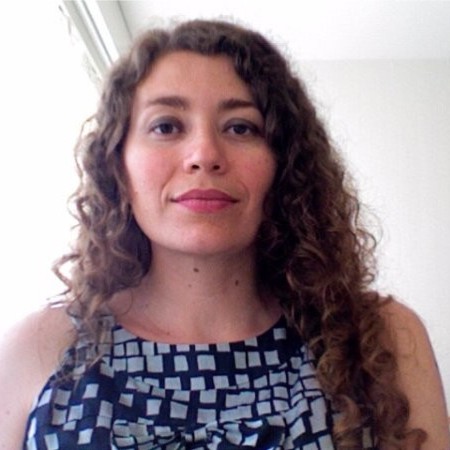 |
Victoria Castillo Dr. Victoria Castillo has over fifteen years professional experience in migration, gender and child protection with international development and humanitarian organizations and NGOs. She specialises in strategic planning and project management, global and regional multi-stakeholder coordination, and policy research and development. She worked 2012-2017 at the Migration Unit of the International Federation Red Cross and Red Crescent Societies (IFRC) in Geneva supporting the Coordinator for “Rights of Migrants in Action,” a €12 million project funded by EU-DEVCO, with a global footprint in 15 countries involving 43 CSOs and related projects. She has been a research consultant with international agencies, NGOs, and academia. She is currently lead researcher-writer for national migration profiles on Balkan countries at GMPA in cooperation with ITUC and has worked with the ILO on women migrant workers at global level and in West, Central and North Africa; with the M&D Platform of the FGC on migrant associations in the Cantons of Geneva and Vaud; and with the EPFL on Indian high skilled diaspora in Switzerland. She engaged as volunteer with the Knowledge Platform and Connection Hub of the UN Network on Migration, GFMD Mayor Mechanism and GFMD Civil Society Days. She holds a PhD from the University of Geneva in Socioeconomics. Her dissertation focused on the role of migrant associations in the integration process of migrants in host countries and their engagement in countries of origin. She holds two Master degrees on Socioeconomics with focus on Demography and on Development Studies. Her main research areas are migrant organizations, migration and development, integration, rights of migrants, labour migration and gender and migration. |
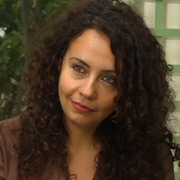 |
Tamirace FakhouryDr. Tamirace Fakhoury is Assistant Professor in Political Sciences and International Affairs at Lebanese American University (LAU) in Beirut. She holds a PhD in Political Sciences from Albert Ludwigs University of Freiburg and Masters in International Affairs from LAU. From 2003 to 2007, she was scientific researcher at the Arnold Bergstraesser Institute for Socio-political Research in Freiburg and lecturer at the University of Freiburg. Prior to 2011, she was Research Fellow in charge of the socio-political module in CARIM (Consortium for the Applied Research on International Migration) at the Migration Policy Center of the European University Institute (EUI) in Florence. In 2010/2011, she held a Jean Monnet Fellowship at EUI for research on the interface between Arab World Diasporas and political change. In spring 2011 she was a visiting scholar at the Centre for Middle Eastern Studies (CMES) at the University of California in Berkeley. In summer 2012, she was Visiting Assistant Professor in International and Area Studies at UC, Berkeley. Her core research areas include Migration policies and migration governance in the Euro-Arab Mediterranean zone. |
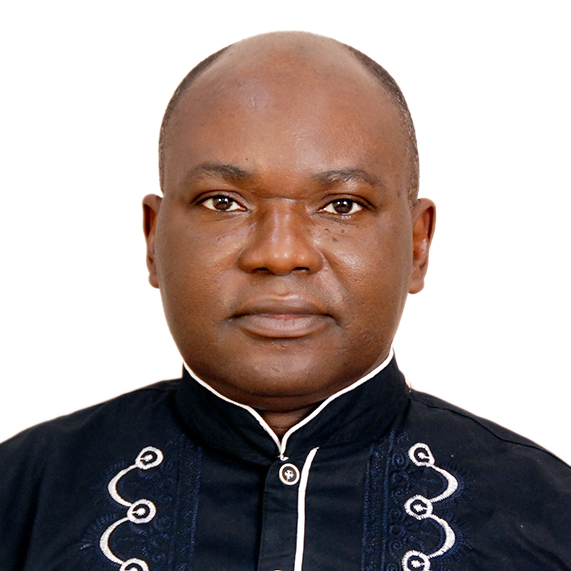 |
Cyprien GangnonCyprien Gangnon has a long professional career in countries in crisis, dedicated to serving populations on the move, including refugees and internally displaced populations in Africa in the Great Lakes, the Lake Chad Basin and the Sahel region. He has a wealth of experience in crisis prevention programmes, violence prevention, and women and youth reintegration/reconciliation programmes. He is currently Stabilisation Specialist, Head of Integrated Office in Center North Region at United Nations Development Program (UNDP) in Burkina Faso. He held several senior management responsibilities in various transition UNDP programmes on governance, rule of law, recovery, resilience, and peacebuilding. Previous experience included ILO (2003-2004) and UNHCR (2006-2007). He worked as a migration researcher in the Canton of Geneva on access of undocumented people to basic social services. He also worked for two years in care of people living with disabilities at Clair Bois Foundation in Geneva. He holds Master's degree in Humanitarian Action from the University of Geneva (2004), Master's degree in International Human Rights from Lyon, France (1999) and a law degree (1994) from Abomey Calavi University in his home country Benin. |
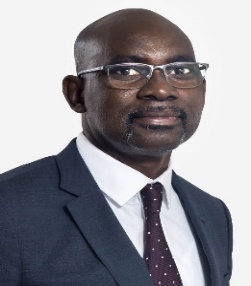 |
Ibrahima GuisséDr. Ibrahima Guissé is an Independent Expert to the UN Committee on the Elimination of Racial Discrimination (CERD). He is also Associate researcher at the Institute for Sociological Research (IRS), Faculty of Social Sciences, Department of Sociology, University of Geneva. He is a founding member of several international civil society networks, platforms and think tanks on issues of human security, governance and resource management in Africa, and sustainable development. In 2005, he founded the office of the Rencontre Africaine pour la Défense des Droits de l'Homme (RADDHO, NGO with ECOSOC Status) in Geneva. He was co-chair for four years (2011-2015) of the Development Committee of CoNGO (Conference of Non-Governmental Organizations in Consultative Relationship with the United Nations). He is co-initiator of the "Plateforme Migration et Développement", a working group on migration and development issues in partnership with the Fédération Genevoise de Coopération (FGC), which he chaired for one year (2014-2015). He is a founding member of the Centre de Recherche et d'Action sur les Droits Economiques Sociaux et Culturels (CRSDESC), which aims to be a center of expertise and a framework for reflection and strategic action for the justiciability of economic, social and cultural rights for inclusive development in West Africa and the Sahel. He is a graduate of the Gaston Berger Universities of Saint-Louis (Senegal) and Geneva (Switzerland). He holds a doctorate in sociology from the University of Geneva and a degree in political science and institutional management. His research interests and activities focus on issues relating to citizen participation and social inclusion: international migration; diversity and inclusion; racism and discrimination; governance and resources in Africa. He is the author of several publications on transnational phenomena and on public inclusion policies and their blind spots. |
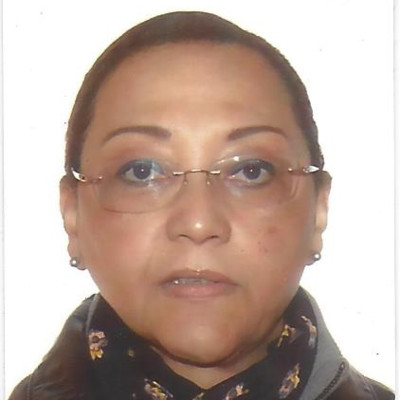 |
Patricia Myriam Isimat-MirinPatricia Isimat-Mirin is an accomplished jurist, legal expert and advocate. Her professional posts have included: Senior Officer at the ILO Standards Department (1990-2010), Magistrate (Judge) in Cote d’Ivoire, Special Advisor to the Mediator of Republic of Côte d'Ivoire, and Member Expert of the Ivorian Commission on Human Rights. She remains a Founder Member of the Association of Women Lawyers of Cote d’Ivoire, Founder Member of National Association for Assistance to Prisoners (ANAP), Member of the Governing Body of National Association for Assistance to Childhood at Risk, Member and Administrator of Prisonniers sans Frontières (Prisoners without Borders), and she is President of LaBalle aux Prisonniers (a new NGO promoting practice of sport in jails in France and in African countries). Her expertise spans: Law-based approach to social development issues; Human rights in context of decent work, labor law, international labor standards, social dialogue and social protection; Non-discrimination, equality rights and opportunity for HIV/AIDS- affected people, migrants, indigenous people, persons with disability; Policy/advocacy in gender equality, children’s rights, child labor, child trafficking, children in armed conflicts, and detainees and prisoner social reintegration; Training, capacity building on human rights, law and mediation; Management, implementation and evaluation of operational programs and technical cooperation projects; Advocacy on fighting and prevention of torture and ill-treatment; Anthropological challenges in Africa. She has a Post-graduate Degree/Diploma from Ecole de la Magistrature Française, Paris, and a Graduate Law School Degree, Department of Judicial Practice, University of Côte d’Ivoire. |
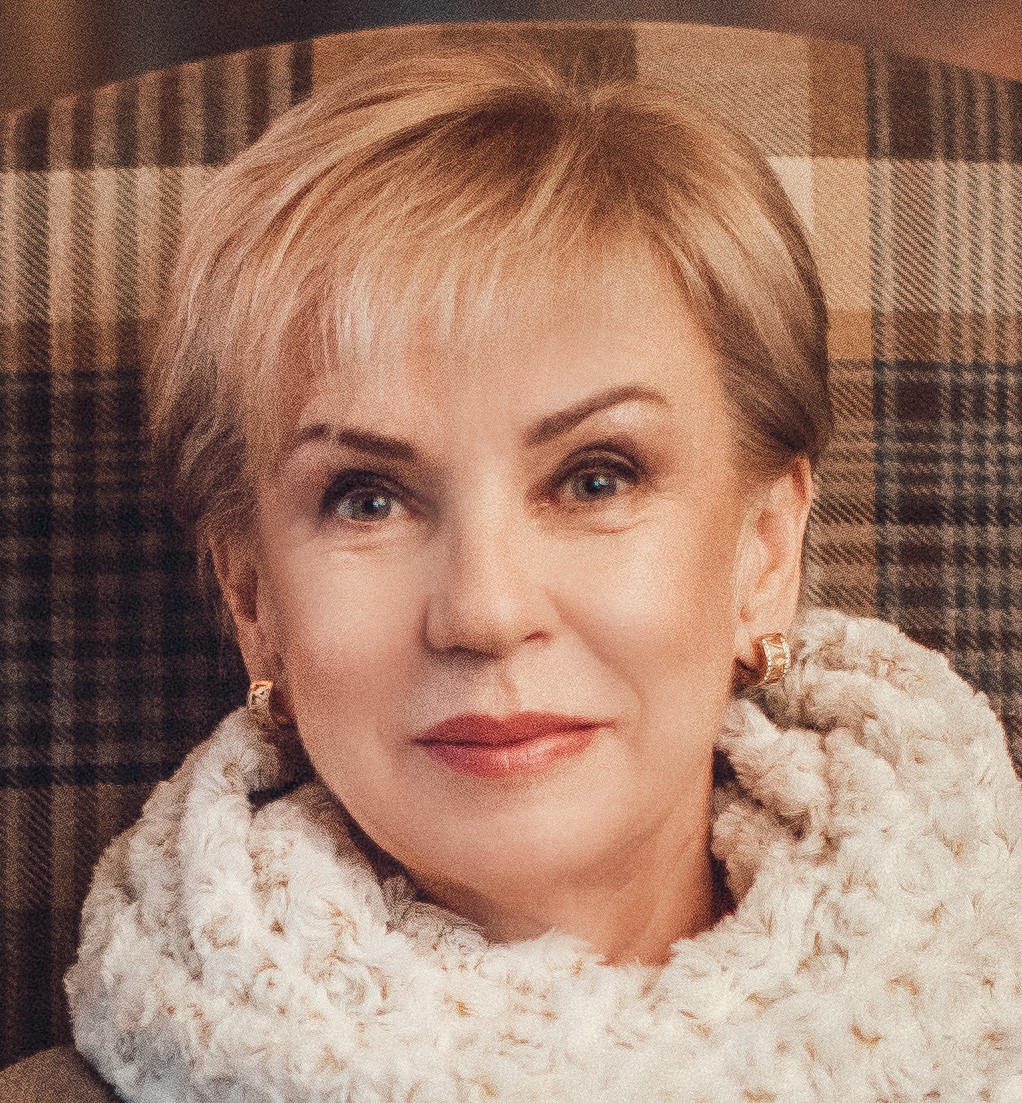 |
Irina IvakhnyukProfessor Irina Ivakhnyuk is an expert in international migration trends and governance with special focus on the post-Soviet area. She is the author of the monograph "The Eurasian Migration System: Theory and Politics" (2008) and over 70 other publications on migration issues in Russia and the Eurasian region. For over 20 years she was a Deputy-Director of the Population Department at the Faculty of Economics at the Lomonosov Moscow State University, both making research in international migration trends, migration and development, migration management, and integration of migrants and lecturing in these topics. She holds a Doctor Degree in Population Economics (2009) from the Lomonosov Moscow State University, Russia. Dr Ivakhnyuk participated in a number of international research projects on migration studies, including those of the UNDP, the IOM, the European University Institute, the Eurasian Bank, and the Council of Europe. |
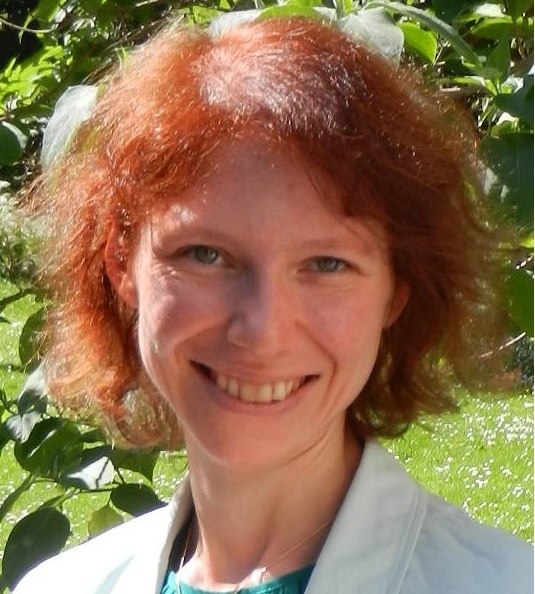 |
Olga Kadysheva Olga Kadysheva has a Candidate of Science in Economics degree (PhD equivalent) and is university lecturer and researcher with 12 years of professional experience at Financial University under the Government of the Russian Federation, where she was Associate Professor at Economic Theory Department. She is Professor at Geneva School of Diplomacy & International Relations, teaching a course "International Migration: Current Challenges and Policy Responses". Since 2013 she has collaborated with GMPA, in 2015 became an Associate and has been Acting Secretary since 2018. She is co-author of UNESCO–ECCAR-GMPA book "Cities Welcoming Refugees and Migrants: Enhancing effective urban governance in an age of migration" (2016), Caritas Europa report "Common Home: Migration and Development in Europe and beyond" (2019) and ILO Technical Capacity-building Manual "Admission and Post-Admission Labour Migration Policies and Tools: Guidance for main Countries of Destination in Southern Africa and the Indian Ocean region" (2024). She provided technical support to GMPA teams in working on research, advisory and policy guidelines projects, in 2021 on GMPA-ILO/JLMP project "Preparation of AU guidelines on BLAs" and in 2020 on the GMPA-implemented project "IGAD regional guidelines for a rights-based approach to BLAs". She is author of more than 40 published scientific research papers, including chapters in monographs and articles in economic journals and books of international conferences. She is member of International Scientific Council of Editors of "Revista Tecnológica ESPOL" (Technological Magazine of ESPOL - RTE journal, Ecuador). Her expertise includes socio-economic aspects of migration, labour migration, migration governance, and migration and development on the local, national and global levels. |
 |
Mehdi LahlouMehdi Lahlou holds a Ph.D in Economics from the University Paris I, Panthéon- Sorbonne, Paris, France (1982). He is former professor at the National Institute of Statistics and Applied Economy, Rabat, Morocco. He contributed as a Senior Researcher at the University Mohamed V, Rabat, to the H2020 project ‘’Religious Diversity Governance in Europe, Asia, and Noth Africa’’ funded by the European Union (2018-2022). He is now a member of the Advisory Board of the European H2020 project on ‘’Co-radicalisation of Youth in Europe: Islamophobism vs. Islamism’’ implemented at Istanbul Bilgi University, Turkey, 2019-2023. He coordinates since 2022 the Mediterranean City to City Migration (MC2CM) project supported by ICMPD. He was Coordinator of the Returnees Program RNO - “Returning to New Opportunities” in Morocco with the support of DVV International and GIZ – Germany 2018-2020. He has collaborated with: the MIREM and CARIM projects at the European University Institute in Florence, Italy; the Canada Research Chair on International Migration Law, University of Montreal; University of Paris I, France; Institute of Political Studies, Bordeaux, France; University Luician Blaga, Sibiu, Romania. He is member of the Bureau of the International Migration Association (AMI), Rabat, Morocco; General Secretary of the Academic Network on Migration in North Africa (NAMAN), and member of the World Federation of Scientific Workers, currently in charge of an NGO partnership working with UNESCO. |
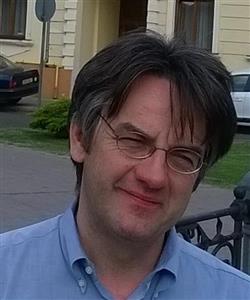 |
Paolo Ruspini Paolo Ruspini has been researching international and European migration and integration since 1997 with a comparative approach and by drawing on mixed methods. His current research deals with transnational migration from a theoretical and empirical perspective. He has worked in many collaborative projects at international and European level and he is active in research networks on international migration as well as being advisor for national and international organizations. He has a MA degree in Political Science from the University of Milan (1994) and PhD in Political Psychology from the Catholic University of Milan (2003). He is Associate Professor at the Department of Education Science, Roma Tre University in Rome since 2021. He is also Associate Researcher at the Institute of Sociological Research, Geneva School of Social Science, University of Geneva, Switzerland since 2017; he was Senior Researcher at the Faculty of Communication Sciences of the University of Lugano, Switzerland in 2008-2017, and was Honorary Research Fellow at the Department of Social Sciences, University of Roehampton, London, 2016 – 2021. In 2020 he was awarded habilitation as Associate Professor in Sociology of Cultural and Communication Processes by the Italian Ministry for Education, University and Research (MIUR). In 2013-2014 he was Visiting Professor at the Scuola Superiore Sant’Anna in Pisa. He was also Associate Fellow at the Centre for Research in Ethnic Relations (CRER) of the University of Warwick for ten years. Recent publications include International Student Mobility as Transnationalism (Routledge, 2021, co-author); Migrants Unbound (2019, Transnational Press London, author); and Migration and Transnationalism Between Switzerland and Bulgaria (2017, Springer, co-editor). |
.jpg) |
Yelena SadovskayaYelena Sadovskaya is an international consultant in migration and migration policies in Kazakhstan and Central Asia based in Almaty (Kazakhstan). She is a Research Council on CIS Migration Studies expert at the Russian Academy of Sciences (Moscow), and an author of a number of comparative studies on migration in the Commonwealth of Independent States (CIS). She holds Ph.D. in Philosophy from the Kazakh State University (Kazakhstan) where she also completed her postdoc research. In 1993-97, as Head of the Population Department at the Research Institute of the Ministry of Labor of Kazakhstan, she was actively involved in the development of the first State Migration Policy Concept and Programme of newly sovereign Kazakhstan, and consulted other governmental bodies on migration policies. From 1998-2005 expert affiliated with the International Organization for Migration, and from 2005 onwards produced analytical reports on migration/labour migration and migration policies for IOM, ILO, UNFPA, the European Commission, World Bank and other international organizations. Her research interests include labour and irregular migration; migration between China and Central Asia; remittances and development, migrant workers’ rights, migration governance, civil society and others. As a co-founder of a local NGO, Centre for Conflict Management, she also has considerable experience as a civil society activist working on education and policy issues around conflict prevention, refugees and human rights throughout Central Asia and wider CIS. Recent publications include dozens of articles and three books on International Labour Migration in Central Asia (2013), Chinese migration to Kazakhstan (2014) and Challenges and Opportunities of China’s Economic Presence and Chinese migration to Central Asia (2012). |
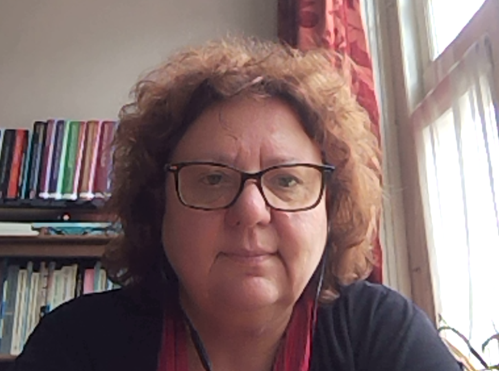 |
Petra SneldersPetra Snelders is experienced Policy Advisor on human rights, women, and migration issues with a long history of working in the non-profit organization sector. Her expertise includes Nonprofit (Grass Root) Organizations, Politics, Gender Equality, International Migration, and Human Rights. She holds a degree (MA) in Political and Behavioral Studies from the Universiteit van Amsterdam. As an policy advisor on campaigns and activities on themes concerning women and migration, development and social equality, the key focus in Petra’s work is contributing to developing a robust advocacy agenda from below that bridges the disjuncture between current policy and daily experience of (migrant/refugee) women - legal, social, economic, political - in the Netherlands, in Europe and international. Additionally, Petra is involved in RESPECT Network Europe, an Europe-wide network of migrant domestic self-organizations and supporters, campaigning for the rights of all migrant domestic workers, working in the private household, both women and men, whether live-in or live-our, and regardless of immigration status, as migration policy advisor and as (international) coordinator. |
 |
Patrick TaranPatrick Ayres Taran is President of Global Migration Policy Associates. He counts 50 years full-time professional experience in international migration, refugee resettlement, immigrant integration, labour migration, and human rights work at local, national and global levels. He has worked in cooperation with governments, international and regional organizations, employer and trade union organizations, civil society and migrant and refugee organizations in all world regions. He previously served as as Senior Migration Specialist at the International Labour Office—ILO 2000-2011; Secretary for Migration at the World Council of Churches 1990 to 1998; and held various posts including research coordinator and Washington Representative at the Church World Service (USA) Immigration and Refugee Program 1980-1990. His first professional post was (founding) Director, South American Refugee Program in Seattle (1977-1980). He was also co-founder (1994) and first Director of Migrants Rights International (MRI) and co-founder (1998) and Convenor of the Steering Committee for the Global Campaign on the migrants rights conventions. His degree majors were social work and Latin America studies at Friends World College State University of New York. He has co-authored 17 books and has more than 100 published articles, briefs and conference papers. He was guest editor of the academic-scientific RTE journal Special Issue on International Migration published in March 2022. |
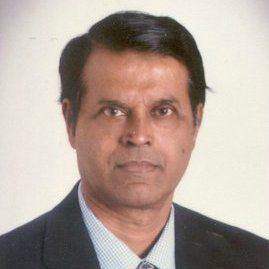 |
Piyasiri WickramasekaraDr. Piyasiri Wickramasekara has 40 years of professional experience in labour migration/mobility, migration and development, human and labour rights of migrant workers. He obtained his bachelor’s degree in economics from the University of Peradeniya, Sri Lanka, and his Ph.D. in Economics from the University of Cambridge, United Kingdom. He was Senior Lecturer in Economics, University of Sri Lanka, 1968-1984. He joined the International Labour Organization in 1985 and was in the International Migration Programme of ILO Geneva 2001- 2010. He steered development of the National Labour Migration Policy in Sri Lanka in 2007-08. He was co-drafter of the ILO Multilateral Framework on Labour Migration (2006) and co-authored International labour migration: A rights-based approach (ILO 2010). He has done extensive research on design, development, implementation, monitoring and evaluation of Bilateral Labour Agreements, and is considered a leading global expert on BLAs. He has carried out research and provided advisory services on BLAs to the ILO and several governments. He carried out the first systematic assessment of Indian MOUs on labour migration with Gulf countries in 2011; a pioneering global review of BLAs for the ILO and the World Bank during 2014/2015 drawing upon regional studies in Africa, Asia, Europe, and the Americas; and undertook the first evaluation of the Government-to-Government (G-to-G) Mechanism involving a bilateral MOU for the Employment of Bangladeshi Workers in the Malaysian Plantation Sector in 2015. He co-developed the ILO International Training Centre (ITC ILO) course modules on BLAs, and acted as lead trainer in several BLA courses including one for senior Ethiopian government officials and diplomats. |
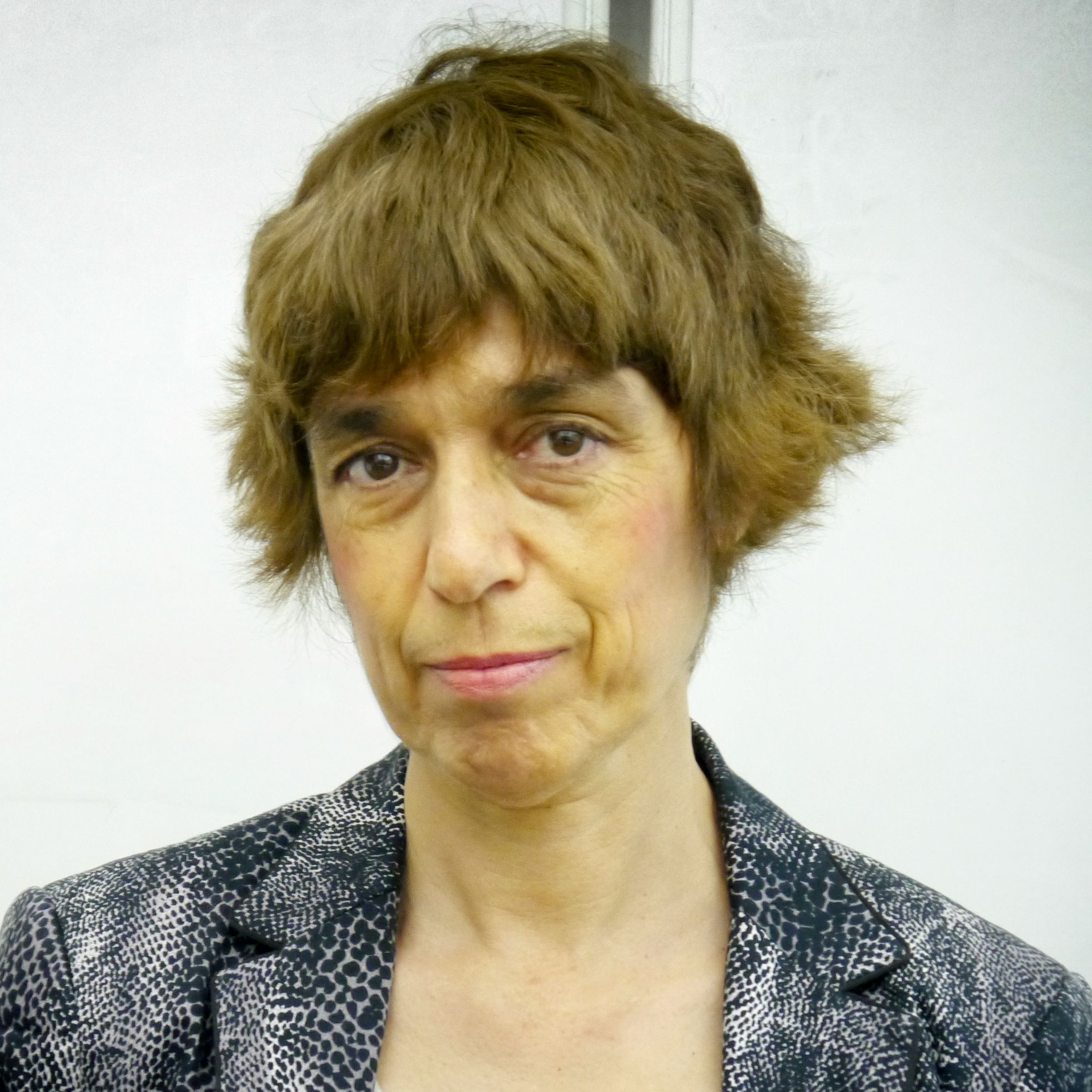 |
Bridget WoodingBridget Wooding (D.Phil University of Oxford) is a Migration Studies scholar based in Santo Domingo, Dominican Republic. She is the first Coordinator of the Observatory Caribbean Migrants (OBMICA), established in 2008 as a think tank on migrations affecting the Caribbean region, under the academic aegis of the Latin American Social Sciences Faculty (FLACSO Dominican Republic) and the Iberoamerican University, based in Santo Domingo. Previously, she worked with international cooperation organisations, covering many areas of Latin America - initially as a desk officer from Oxford and, finally, based in the Caribbean region. Currently she lectures on migration issues at local Universities and also carries out independent consultancies. Following her early interests on Dominico-Haitian relations and especially the topic of Haitian immigration to the Dominican Republic, her research interests have widened to include migration and gender issues, migrations from a rights perspective as well as migration and the environment in the Caribbean region. Several of her publications are available in English, Spanish, and French. |
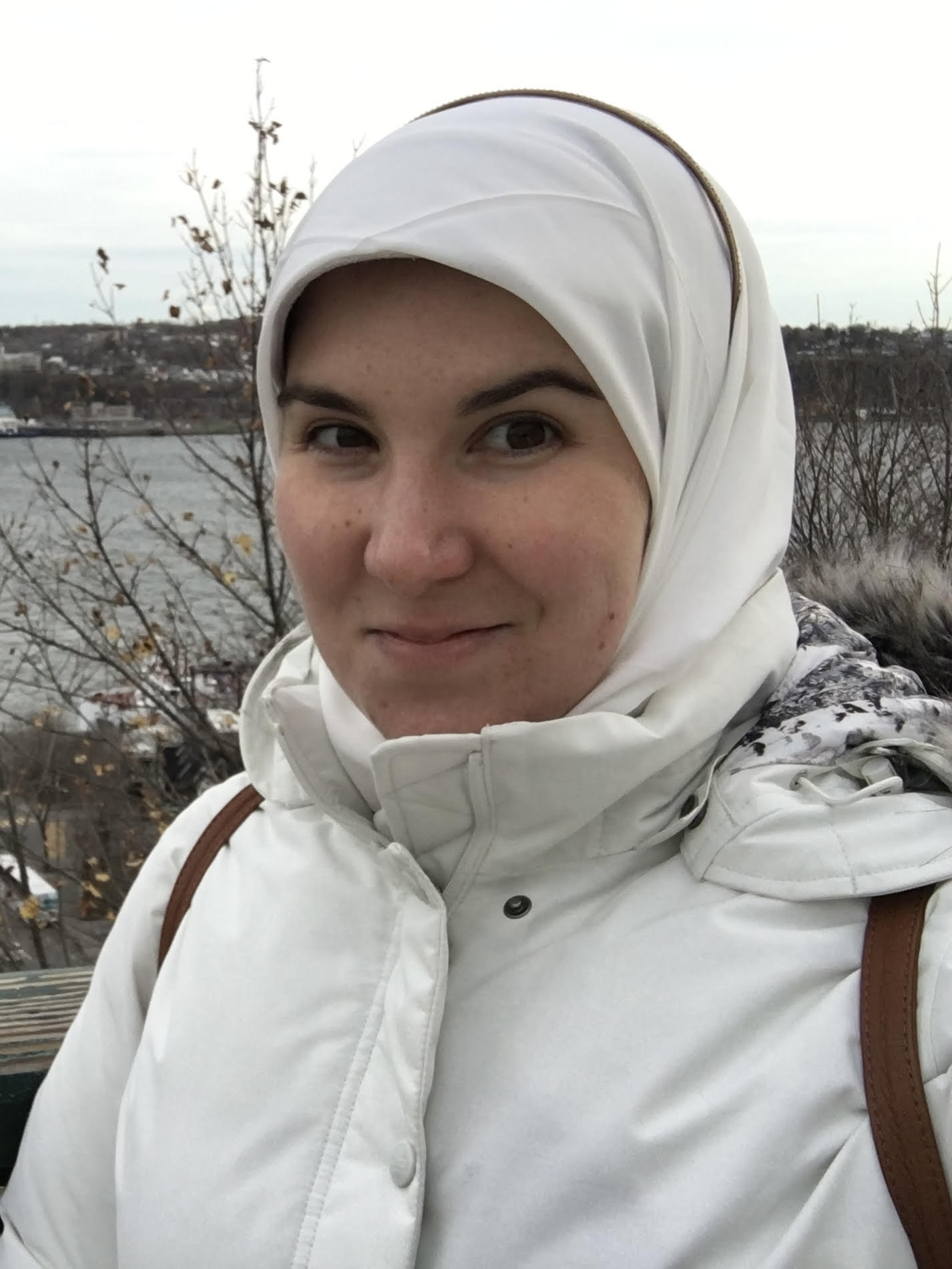 |
Emel ZerroukEmel Zerrouk has a multidisciplinary background that spans water and land policy, international law, and resource management. With a PhD in environmental studies from Kyoto University and a Master’s degree in international relations and diplomacy from Geneva School of Diplomacy and International Relations, she has worked on environmental concerns with international organizations including the UN and the World Intellectual Property Organization (WIPO). Emel is currently involved in ‘greening’ health care and making that sector more sustainable. She notes that living and working across three continents has led to a deep respect for different cultures and beliefs and a great respect for our interconnected global biome. Emel was born in UK and is resident in Vancouver, Canada. Her research and several publications have covered environmental degradation, land and water grabbing and impacts on populations resulting in internal displacement and cross border movement: Zerrouk, Emel (2015). “Development-Forced Land Grabs and Resistance in Reforming Myanmar: The Letpadaung Copper Mine” in: Global Implications of Development, Disasters and Climate Change Responses to Displacement from Asia Pacific. Routledge; Zerrouk, Emel (2013). Water Grabbing/Land Grabbing in Shared Water Basins the Case of Salween River Hatgyi Dam. Journal of Water Resources and Ocean Science. Vol. 2, No. 5; Zerrouk, E. and Neef, A. (2014). “The Media Discourse of Land Grabbing and Resistance During Myanmar’s Legal Reformation: The Monywa Copper Mine” in Law and Development Review. Since February 2024, she is Professor at the Geneva School of Diplomacy & International Relations, teaching a course on Water Diplomacy. |
THE AFFILIATES |
|
 |
Marla AsisMarla Asis is Director of Research and Publications at the Scalabrini Migration Center. She is a sociologist who has long been working on international migration and social change in Asia. Her recent research includes the study of the health and well-being of children in the Philippines (which is part of a four-country study on health and migration in Southeast Asia), capacity-building of migrants' associations and Philippine government institutions as development partners, the impact of government regulations on the protection of foreign domestic workers, the assessment of pre-departure information programs for migrants, and the displacement of Filipino workers from the Middle East and North Africa. She is Co-editor of the Asian and Pacific Migration Journal. She has authored various publications and has participated in many international conferences. Prior to joining the Center, she was Associate Professor at the University of the Philippines. |
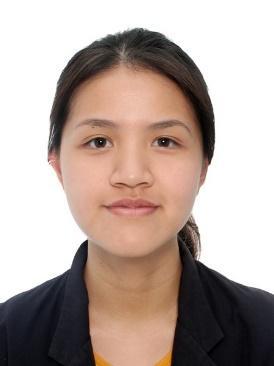 |
Denielle Amparado Denielle Mary Audrey Amparado was Research associate at Global Migration Policy Associates in 2022 working on preparing country migration profiles on Eastern Europe and Eurasian countries for GMPA-ITUC project. She aslo served as scribe under GMPA auspices at the Global Parliamentary Conference on refugees and migration held in Istanbul in June 2022, organized by the Inter-Parliamentary Union -IPU and the Grand National Assembly of Türkiye. Her professional experience includes Technical Assistant at Bureau of Local Government Finance in the Philippines, research internship at Migration Policy Institute (MPI) and Migration, Displacement, and Humanitarian Policy internship at Center for Global Development. She is completing her studies at Smith College (USA) for a Bachelor of Arts in Government degree and she did a year abroad at the University of Geneva as part of her studies. |
Pablo CerianiPablo Ceriani Cernadas is Coordinator of the Migration and Human Rights Program at the Center for Human Rights of the National University of Lanús, Argentina (UNLA). He is Professor of Human Rights of Migrants, with degrees from the University of Buenos Aires (UBA) Law School and Masters on International Migration Policies from UBA and on Human Rights from UNLA. He is a PhD candidate at the University of Valencia, Spain. The research team he coordinates has a focus on rights of children in the context of migration, at global, regional and national (Argentina, Mexico, Guatemala) levels. Since 2009, he provides technical assistance to UNFPA (UN Fund for Population Activities) on sexual and reproductive health of women and adolescent migrants and to UNICEF on rights of children in the context of migration. From 2002 to 2006, he coordinated the Legal Clinic for Immigrant and Refugee Rights in Argentina. He played critical roles in adoption of the Argentina migration law in 2003 and ratification of the ICRMW in 2007 He co-coordinated publication of Políticas Migratorias y Derechos Humanos (UNLA, 2009). |
|
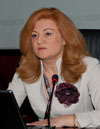 |
Jana CostachiJana Costachi is former Deputy Minister of Labour, Social Protection and Family of Moldova. With a Ph.D. in sociology, she has been Associate Professor at the University of Bucharest, Romania (2006-2007) and Associate Professor at the Eurasian National University, Kazakhstan (2010-2011). She has many years experience in promoting social justice and preventing social exclusion of vulnerable people with specific focus on family policies, labour migration issues, equal opportunities, and trafficking in human beings. She has served as Senior Migration Policy Adviser, Chief Technical Adviser, and National Projects Coordinator for ILO. Over the last five years she held executive posts in ILO Technical cooperation projects covering Albania, Moldova and Ukraine and Central Asia: Kazakhstan, Kyrgyz Republic and Tajikistan. She has been member of various Governmental Working Groups, Expert Groups and Task Forces. As President of the Association of Women in Legal Careers in Moldova and Director of the Centre for Prevention of Trafficking in Women, Ms Costachi has pioneered mechanisms for access to justice and employment opportunities for victims of trafficking. |
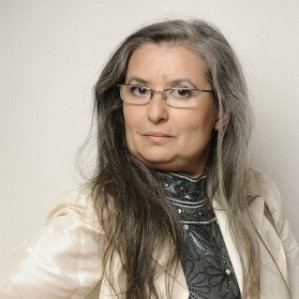 |
Elena Dingu-Kyrklund Elena Dingu-Kyrklund is an Independent Expert at KCI - Kyrklunds’ Consulting International (based in Stockholm, Sweden). Her expertise includes international migration and ethnic relations, international & comparative pedagogy, social anthropology, international relations, EU & comparative international law, as well as translation and interpretation. She has been teaching at University of Bucharest, Romania and Stockholm University, Sweden. She has Master of Arts degree in Social Anthropology – International Migration and Ethnic Relations (2001), Stockholm University; MA in International Relations /Diplomacy, International Relations and Affairs/Diplomacy (1994), National Graduate School for Political Studies and Public Administration, Bucharest; LL.M. & Master of European and Comparative Law, EU- and Comparative International Law (1993), Limburg (Maastricht) University, and MA in Philology, major(s): English, French, Romanian, Pedagogy (1991), University of Bucharest. |
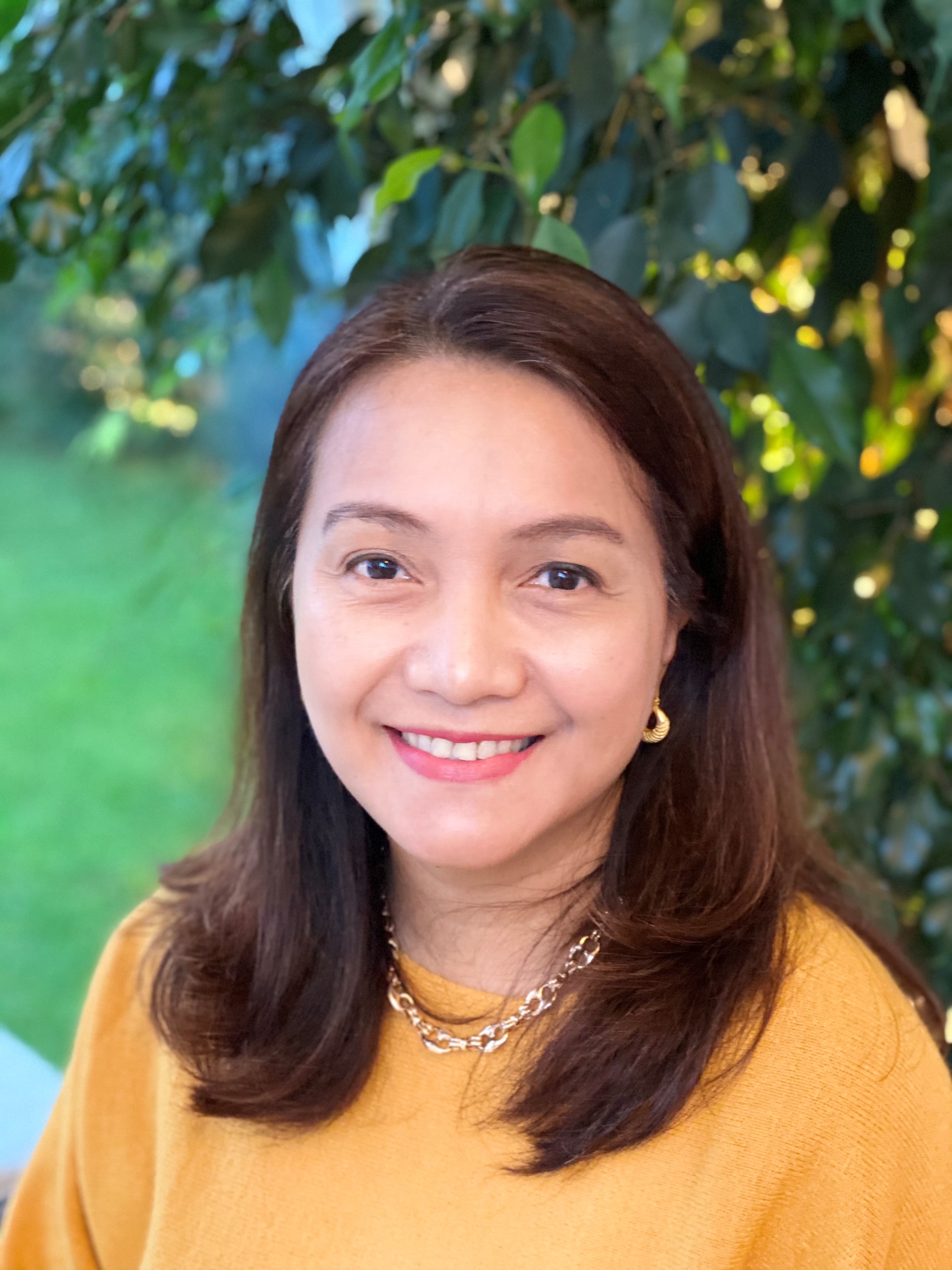 |
Genevieve Gencianos Genevieve Gencianos is the Migration Programme Coordinator of PSI - Public Services International, the global union federation of workers in public services. She has an extensive background on international migration, development and human rights issues, based on her 25 years of policy and project experience in various countries. She holds a Master’s Degree in Public Administration (University of the Philippines) and a Master’s Degree in International Development (University of New South Wales, Australia). As PSI’s Migration Programme Coordinator, her work involves building the capacity of PSI unions in national, regional and global policy advocacy and coordinating PSI’s union development projects on migration, refugees and internally-displaced persons in Africa and Middle East and North African (MENA) countries. |
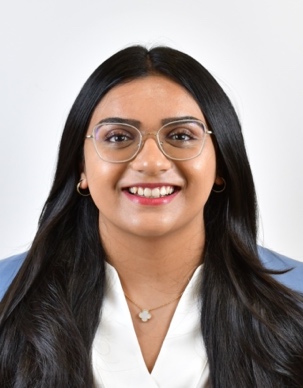 |
Hiral Hirani Hiral Hirani is a Kenyan researcher based in Geneva with background in migration, environment, international trade and development issues. She is an Economic Affairs Intern at UNCTAD in Geneva. Before she was a Research Associate at CUTS International Geneva, an NGO that promotes the perspectives of the Global South in international trade debates. She was Research associate at Global Migration Policy Associates in 2021 working on GMPA-ILO/JLMP project "Preparation of African Union guidelines on Bilateral Labour Agreements (BLAs)". She has a Masters degree in International Relations from Geneva School of Diplomacy & International Relations. Her publications include: ‘Global warming impacts displacing the Maasai community in East Africa: challenges and responses’(2022) in Revista Tecnológica – Espol, Ecuador and 'Competition in WTO Trade Policy Reviews: How has it been addressed?' (2021) (co-authored with J. Grollier), CUTS International, Geneva. |
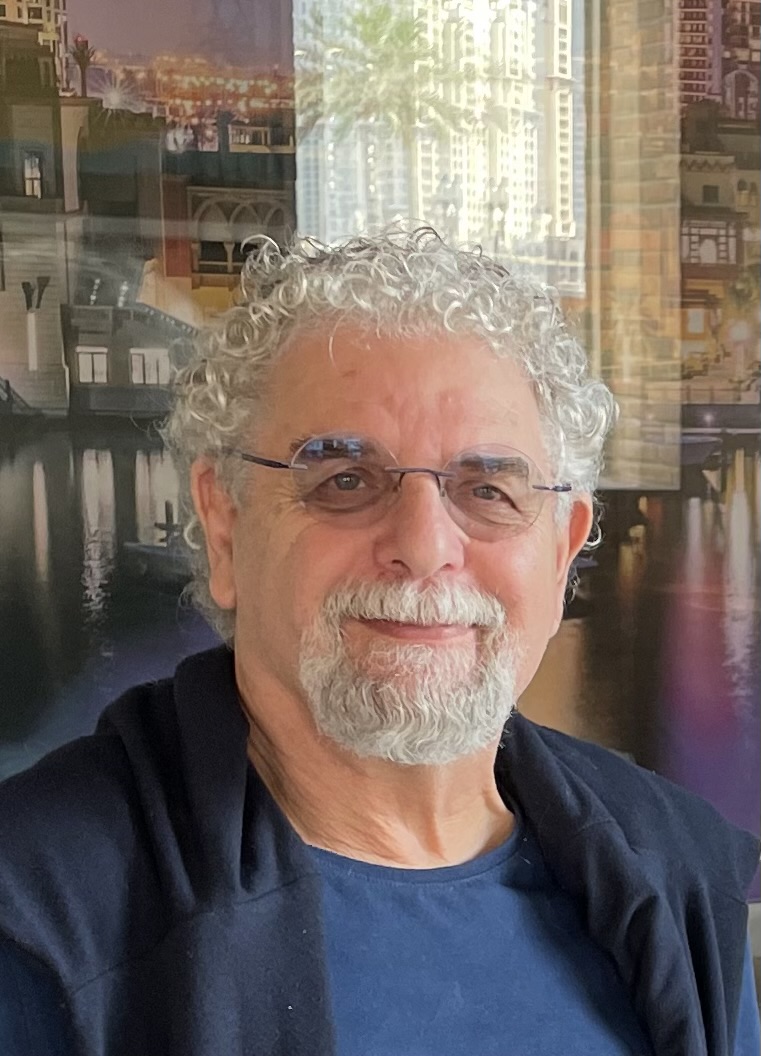 |
Ray Jureidini Ray Jureidini is Professor of Migration Ethics and Human Rights at the Center for Islamic Legislation and Ethics (CILE) in the College of Islamic Studies at Hamad Bin Khalifa University, Qatar (since 2014). After teaching Sociology in several universities in Australia, he served 6 years at the American University of Beirut from 1999-2005. At the American University in Cairo from 2005-2011 he was director of the Migration and Refugee Studies program (2008-2011). In 2011-13 he was research consultant at the Qatar Foundation (QF) and was one of the authors of QF’s 2013 Mandatory Standards for Migrant Worker Welfare. In 2014, his report, Migrant Labour Recruitment to Qatar was published by Bloomsbury/Qatar Foundation. He has published further on labour recruitment corruption and reform with the International Labour Organization (2016) and the International Organization for Migration (2017); wage protection systems in the GCC (2017) and Qatar (2019). He recently co-edited a book with Said Hassan (2020) Migration and Islamic Ethics with Brill. He regularly consults on migration and refugee issues, migrant labour recruitment, labour supply chain evaluations and migrant labour reform advocacy. |
 |
Guillermo KerberGuillermo Kerber is an Ethicist with doctoral degree on Sciences of Religion, with broad international experience in ecology and climate change, reconciliation after violent conflict situations, Responsibility to Protect (R2P), and Human and Victims' Rights. Since 1999 he has been Programme Executive at the World Council of Churches for Human Rights, Migration, and environment and climate change issues. He is a Member of the Board of the Global Campaign for Climate Action (GCCA) and is President of the Executive Committee of the International Network on Human Rights. Previous responsibilities included serving as Member of the Board of the Life and Peace Institute, as Professor at the Universidad de la Republica in Uruguay and Professor and Researcher at the Universidad Católica del Uruguay. He studied at the Universidade Metodista de São Paulo and the Instituto Teologico del Uruguay. He has been programme manager of projects and organizer of conferences, seminars and workshops in Africa, Asia, Latin and North America, the Caribbean, Europe and the Pacific. His specializations include Social Ethics, International Affairs, Ecology, Climate change, Liberation theologies, Interfaith cooperation. |
 |
Sadhana ManikSadhana Manik is Associate professor at the Department of Geography Education in the School of Education at the University of KwaZulu-Natal (UKZN), South Africa. Her research interests include environmental education, student access, support and success in higher education, textbook research and teacher mobility and migration with intersectional variables including gender, COVID-19 & climate change. She has published extensively and served as an editor of several special editions in her research niche areas. She is the co-ordinator of the global south for SANORD’s Teacher Education, a special interest group of the global universities network. She is the project leader at UKZN for two international higher education collaborations which involve the exchange of students, teachers and researchers between UKZN, South Africa and Western Norway University of Applied Sciences (HVL), Norway. She was awarded ‘excellence in teaching’ by UKZN in 2018 and featured in the ‘top 30 most published researcher’ list in the College of Humanities at UKZN in 2019. She has annually received university awards since 2019, for her research endeavors both locally and internationally. |
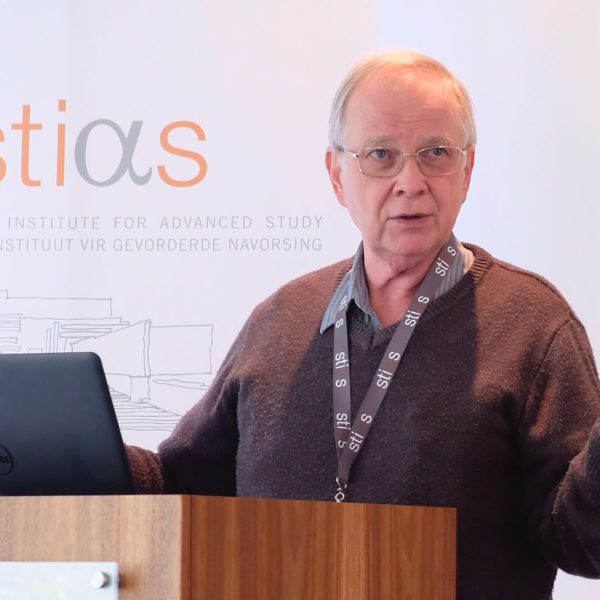 |
Marius Olivier |
 |
Rebecca ShepardRebecca Shepard is a recent graduate of the Geneva Graduate Institute. She has a background in communications and media and has worked in communications with international organisations such as the International Labour Organisation (ILO) and International Air Transport Association (IATA). She was Research associate at Global Migration Policy Associates in 2021 doing research on several topics including migrant access to healthcare, education, and the special challenges of COVID-19 on migration policy. Her areas of interest include refugee issues, female migrants, and sustainability/environmental migration. |
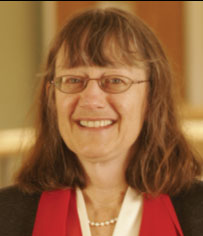 |
Constance de la VegaConstance de la Vega has a Doctor of Law (J.D.) degree in International Law and Legal Studies from University of California, Berkeley, School of Law (1975-78). Since 1990, she has been Professor of Law at the University of San Francisco School of Law, the Academic Director of the International Programs, and the Director of the Frank C. Newman International Human Rights Law Clinic at the University of San Francisco School of Law. Previous experience included Staff Attorney at East Palo Alto Community Law Project and at Legal Aid Society of Alameda County, and Managing Attorney, West Oakland office of Legal Aid Society. The State Bar of California International Law Section awarded Professor Constance de la Vega the Warren Christopher International Lawyer of the Year Award in 2016. She is a member of United States Supreme Court Bar and the California State Bar and is accredited to (US) Ninth Circuit Court of Appeal and to Federal District Court for the Northern and Eastern Districts of California. She has been Member of Board of Directors of Human Rights Advocates, Inc., since 1978, Member of National Advisory Board of Berkeley Women's Law Journal since 1984 and Associate Editor, Industrial Relations Law Journal of University of California Berkeley School of Law. Several of her publications address migrants’ rights, for example: “Advocates Should Use Applicable International Standards to Address Violations of Undocumented Migrant Workers in the United States” in Human Rights and Refugees, Internally Displaced Persons and Migrant Workers. 2005 (co-author Conchita Lozano-Batista) and “Book Review: Migrant Workers in International Human Rights Law: Their Protection in Countries of Employment” in Human Rights Quarterly No. 229, 1999. |
 |
John WrenchJohn Wrench is Professor II in the Centre for Diversity and Inclusion at the Norwegian University of Science and Technology, Trondheim. Until 2010 he was senior researcher at the EU Agency for Fundamental Rights in Vienna responsible for European comparative research projects and the Annual Reports of the Agency that present an overview of developments in the area of racism, xenophobia and discrimination, as well as other fundamental rights issues, in the EU each year. He has researched and published in the area of ethnic discrimination and inclusion in the labour market at a European comparative level, first at the Centre for Research in Ethnic Relations, University of Warwick, and later at the Danish Centre for Migration and Ethnic Studies, University of Southern Denmark. He has also carried out a number of research commissions in the area of employment integration and exclusion in Europe on behalf of the International Labour Office and the European Commission. |
| RESEARCH ASSOCIATES (2023/2024) | |
 |
Gül Eda Düzgün Gül Eda Düzgün, a native of Türkiye, is a Ph.D. Candidate in the Department of Political Science at Hacettepe University in Ankara. She studied International Relations at Dokuz Eylül University in Izmir and obtained a Master's degree in Political Science from Hacettepe University. She worked as Research Development Assistant on the study 'The Normative Foreign Policy of Turkey and Its Participation in Global Normative Processes: An Examination of ECOSOC' by the Scientific and Technological Research Council of Türkiye. Her research interests include migration, human rights, and gender. As part of GMPA Team, she is working on a comprehensive literature survey and analysis on Social Justice as part of preparing the Special Issue: Social Justice in the Contemporary World of the academic-scientific journal RTE -Revista Tecnologica ESPOL (Ecuador), produced jointly with GMPA. She attends for GMPA conferences and events including the recent sessions of the UN Human Rights Council. |
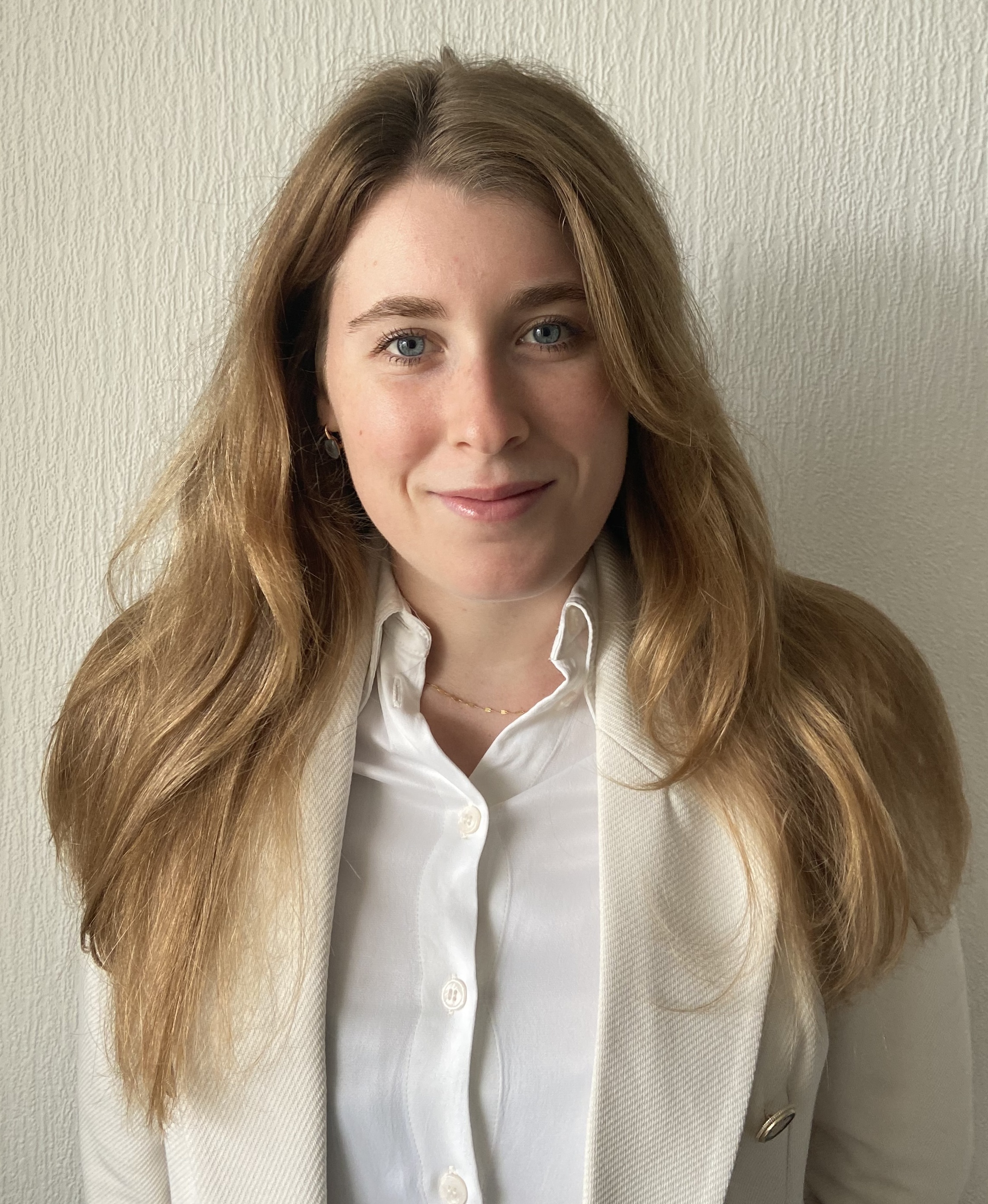 |
Elisa Ferrante Elisa Allegra Ferrante, of Italian origin, holds a Federal Maturity diploma from the Swiss School in Milan and has a Bachelor's degree in International Relations from the University of Geneva. She will continue her studies at Master's level, with a specialization in political science and migration. She worked for the Program Horizon académique at University of Geneva, a component of the Swiss Integration Agenda (AIS) and the Cantonal Integration Program (PIC), that serves as a preparatory bridge to university studies for individuals within the asylum domain. Her previous professional experience includes working as Project and Communications Assistant at Fondation Eduki in Geneva and as Head of the culture and institutions department at Swiss Diplomacy Student Association (SDSA), as well as being a Member of Swiss Foreign Policy think tank and a Member of the Events Team of Geneva International Model United Nations (GIMUN). |
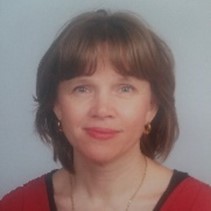 |
Desiree Mortenson Desiree Mortenson has a Doctorate Degree from the Geneva School of Diplomacy and International Relations. She earned a Master's degree in Public Administration from the University of Colorado in Denver. Desiree is an experienced public sector professional who has worked in education, health, and human services. She also served as Caseworker for the American Red Cross SAF-International Services and as Secretary for a Committee of the AMAR International Charitable Foundation that advocates for refugees in Northern Iraq. She and her husband are from Maryland, USA and have five beautiful children. Her DIR (Doctorate in International Relations) dissertation Foreign policy in the Middle East and North Africa in the post-9/11 era. Case Study of US-Israeli-Egypt relations, diplomatic strategies and compliance with International Law includes an evaluative study of humanitarian advocacy for refugees. |


